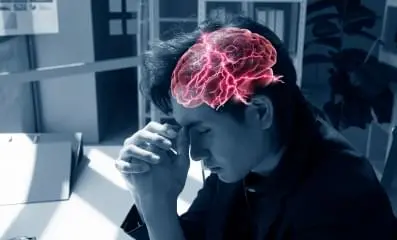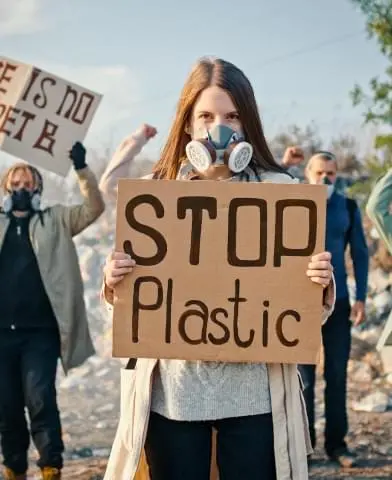
How Does Social Media Affect Mental Health?
Clinically Reviewed by:
Social media is an incredible tool for keeping in touch with friends and sharing stuff, but excessive scrolling can negatively impact your mental health, causing feelings of loneliness, sadness, and stress.
This article provides valuable insights for young people on how to navigate the impact of social media on their mental health. It offers tips for recognizing negative feelings caused by excessive use of social media and empowers readers to maintain a healthy balance between their online and offline lives.
Key Takeaways
Social media usage has skyrocketed in the last decade, but its impact on mental health is concerning. The article discusses how:
- Social media can have both positive and negative effects depending on various factors.
- Excessive use of social media can paradoxically heighten feelings of loneliness.
- Curated content on social media cultivates unrealistic expectations, causing mental illnesses.
Take a step towards mental wellness by contacting Indiana Center for Recovery. Connect with us at (844) 6500064 to learn more.
Impact Of Social Media On Mental Health: An Overview
The impact of social media on mental health has been a topic of significant concern and research in recent years. While social media platforms offer various benefits, such as connecting people globally, sharing information, and facilitating communication, they also have potential adverse effects.
Here’s an overview of some of the critical impacts:
Mental Health In The Digital Age
In today’s digital age, mental health issues among young people are increasingly linked to their social media habits. The constant exposure to curated images and unrealistic standards on social media platforms can negatively affect self-esteem and body image.
Moreover, cyberbullying and online harassment are prevalent, leading to increased levels of stress and anxiety among young users.
Peculiarities Of Social Media Use
The peculiarities of social media use among young people comprise its advantages and drawbacks. While social media platforms offer opportunities for connectivity and self-expression, excessive use can lead to addiction and a decline in real-world social interactions.
Additionally, the constant comparison with peers’ seemingly perfect lives can worsen feelings of inadequacy and depression.
Positive Effects Of Social Media On Mental Health
While social media often receives criticism for its potential negative impacts on mental health, it’s essential to recognize that it can also have positive effects when used mindfully.
Here are some ways in which social media can positively influence mental health:
Social Support And Connection
Social media can positively affect mental health by providing a platform for social support and connection. Studies have shown that young adults and teens who actively engage with social media report feeling more connected to their peers and communities.
Through online networks, individuals can find support from friends, family, and even strangers, fostering a sense of belonging and reducing feelings of isolation. This connection can be especially beneficial for those who may struggle to find support offline, such as individuals with mental health problems.
Self-Expression And Self-Identity
Social media offers a space for self-expression and self-identity exploration, particularly for young adults and teens. By sharing thoughts, feelings, and experiences, individuals can better understand themselves and their interests.
Research suggests that engaging in online self-expression can boost self-esteem and confidence. Moreover, platforms like Instagram and TikTok allow users to showcase their creativity and talents, empowering them to project their unique identities and connect with others who share similar passions.
Mental Health Awareness And Advocacy
Social media is crucial in raising awareness about mental health issues and advocating positive change. Studies indicate that young adults and teens are more likely to access information about mental health through social media platforms than through traditional sources.
By sharing personal stories and advocacy campaigns, individuals can help destigmatize mental illness and promote acceptance. Furthermore, social media provides a platform for organizations and activists to mobilize support and influence policy decisions regarding mental health issues.
Negative Effects Of Social Media On Mental Health
Social media has become integral to modern life, offering numerous benefits such as connectivity, information sharing, and entertainment. However, it also has adverse effects on mental health, including:
Cyberbullying And Online Harassment
Cyberbullying on social media can cause serious harm to mental health. People, especially teens, face harassment, threats, and humiliation online. This can result in anxiety, depression, and even lead to suicide.
With excessive screen time, users become more vulnerable to such negative experiences. Despite efforts by technology companies, cyberbullying remains a significant issue, impacting the well-being of users.
Social Media And Depression
Excessive use of social media has been linked to depression, particularly in young people. Constant comparison with others, exposure to unrealistic standards, and feelings of inadequacy contribute to low self-esteem and depressive symptoms.
Human beings may feel isolated or disconnected despite being connected online. Addressing this issue requires acknowledging the impact of social media on mental health.
Social Media Addiction
Social media addiction is a growing concern, resembling psychiatric disorders. People find it difficult to control their use of social platforms, often prioritizing them over real-life activities and relationships.
Excessive screen time leads to negative consequences, affecting productivity and well-being. Technology companies play a role in designing addictive features that keep users hooked.
The Role Of Social Media In Body Image Issues
Social media perpetuates unrealistic beauty standards, contributing to body image issues among users. Constant exposure to edited and filtered images creates pressure to conform, leading to dissatisfaction with one’s appearance.
This obsession with physical appearance can trigger eating disorders and low self-esteem. This can often result in body dysmorphia, where people start hating one’s physical appearance.
FOMO (Fear Of Missing Out) In Social Media
FOMO, fueled by the constant updates and posts on social media, exacerbates feelings of anxiety and inadequacy. Users fear being left out or not living up to the experiences showcased online. This fear drives compulsive checking and engagement with social media, contributing to social media addiction.
Technology companies capitalize on FOMO by designing platforms to maximize engagement, further perpetuating this cycle of anxiety and discontent.
Age And Social Media Interaction
Social media platforms have become part and parcel of daily life for many individuals, especially younger generations, shaping their communication patterns, social interactions, and even identity development.
Here are some key points to consider regarding the impact of social media on teens’ mental health:
Social Media Influence On Teens
Over the past decade, social media has become a big thing for teenagers. Many kids spend a lot of time on social media sites like Instagram and TikTok. They post pictures, chat with friends, and follow celebrities. Sometimes, this constant connection can be overwhelming.
For instance, seeing others with fancy things can make teens feel bad about themselves. Parents need to talk to their kids about healthy social media use.
Young Adults Coping With Social Media Stress
Young adults face a lot of stress from social media. With the rise of smartphone use, spending too much time online is easy. This can develop feelings of anxiety or insecurity. However, there are things they can do to cope.
Taking breaks from social media, finding hobbies offline, and talking to friends or parents about their feelings can help. A healthy balance between online and offline activities is critical to managing social media stress.
Mitigating The Adverse Effects Of Social Media On Mental Health
Mitigating the harmful effects of social media on mental health requires a multi-faceted approach involving both individual actions and systemic changes.
Here are some strategies:
Responsible Social Media Usage
In today’s world, it’s crucial to use social media responsibly. Many spend hours scrolling through feeds on popular social media platforms like Facebook, Instagram, and TikTok. However, excessive social media use can have adverse effects on our mental health.
By being mindful of how much time we spend online and what we’re viewing, we can protect ourselves from the harmful effects of social media.
Digital Detox: Unplug From Social Media
Sometimes, taking a break from the constant stream of information on social media is essential. A digital detox means unplugging your devices, especially from the most popular social media platforms, for a set period. This break can help reduce feelings of anxiety and stress caused by excessive social media use.
Instead of scrolling through people’s posts, connect with friends and family in person or engage in activities that bring you joy.
Online Help And Resources For Mental Health
If you’re feeling overwhelmed by the effects of social media use on your mental health, know that help is available online. Many websites and apps offer resources and support for managing social media-related stress and anxiety.
From mindfulness meditation exercises to online therapy sessions, these resources can provide valuable tools for coping with the harmful effects of excessive social media use.
Educational Programs On Safe Social Media Use
Educational programs on safe social media use can help us navigate the digital world responsibly. These programs teach us about the addictive nature of social media, often likened to a slot machine, and how it can impact our mental health and sleep patterns.
By learning to prioritize essential things in life over constant online engagement, we can build healthier habits and maintain better social connections.
Frequently Asked Questions (FAQ)
Social media can impact mental health in various ways. Excessive use can develop feelings of loneliness, anxiety, and depression due to unrealistic comparisons, cyberbullying, and fear of missing out (FOMO). The curated nature of content can create a distorted perception of reality, contributing to low self-esteem.
Additionally, constant connectivity can disrupt sleep patterns and exacerbate stress. However, it can also provide support networks and valuable connections. Moderation and awareness of usage are essential for maintaining a healthy balance.
Social media can exacerbate social anxiety by intensifying feelings of self-consciousness and fear of judgment. The pressure to present a perfect virtual image can lead to constant comparison and heightened anxiety about one’s social status.
Furthermore, the ease of communication through text can hinder face-to-face interactions, reducing opportunities for practicing social skills. However, it can also offer a platform for connecting with others in a controlled environment, allowing individuals to build confidence and gradually find supportive communities.
Social media can exacerbate social anxiety by intensifying feelings of self-consciousness and fear of judgment. The pressure to present a perfect virtual image can lead to constant comparison and heightened anxiety about one’s social status.
Furthermore, the ease of communication through text can hinder face-to-face interactions, reducing opportunities for practicing social skills. However, it can also offer a platform for connecting with others in a controlled environment, allowing individuals to build confidence and gradually find supportive communities.
Social media addiction can lead to a range of negative effects on mental health and well-being. Excessive usage can result in decreased productivity, disrupted sleep patterns, and neglect of real-life responsibilities. It may contribute to feelings of anxiety, depression, and loneliness due to constant comparison and fear of missing out.
Compulsive social media checking can strain relationships and hinder face-to-face interactions. Seeking professional help and setting boundaries are essential for addressing and managing social media addiction.







 100% Confidential
100% Confidential